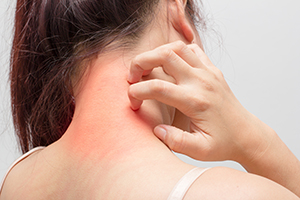
Though at least 11% of women in the U.S. have endometriosis, many suffer in silence without answers or treatment. Some believe it’s just a normal part of having a period. Others may be too embarrassed to talk with a doctor. “But, there are many ways to manage the pain,” says Jackie Werner, MD. “And the good news is that as more people become aware of the disease, more people are getting the treatment they need and deserve.”
What Is Endometriosis?
Endometriosis is a condition that happens when the endometrial tissue that normally lines the uterus forms outside of the uterus (on the pelvis, ovaries, fallopian tubes, bowel or bladder).
It’s not clear what causes endometriosis, but genetics, hormones or issues with menstruation may play a role.
"Anyone who has menstrual cycles can get endometriosis," explains Dr Werner. "However, it's more common the longer a woman has her cycles. It is most frequently diagnosed after the age of 25."
Endometriosis Symptoms
Find Help for Endometriosis
Ready for answers? Our women’s health providers are here to help you understand the cause of your symptoms and find a solution that works for you. We’ll be with you every step of the way—and won’t stop helping until you feel like yourself again.
The most common endometriosis symptom is pain. The level of pain and when it happens varies from person to person. People with endometriosis may feel pain during:
- Bowel movements
- Menstrual periods
- Sex (or after)
- Urination
And symptoms can range from minimal to severely debilitating.
Endometriosis and Fertility
Though some women with endometriosis have no problems getting pregnant, for others, it may be harder. In fact, researchers estimate that about half of all people with endometriosis experience infertility. Since the condition can block or scar fallopian tubes, fertilization can be a challenge. Additionally, women with endometriosis are more likely to have lower egg counts.
“If you have endometriosis, and are having trouble getting or staying pregnant, contact your doctor,” suggests Dr. Werner. "There are many treatment approaches to help become and stay pregnant."
Treating Endometriosis
Treatment for endometriosis depends on many factors, including symptoms, age, medical history and the desire to become pregnant. While there’s no cure, treatments are available to help relieve symptoms and other problems, such as:
- Hormone therapy to help relieve symptoms for those not trying to get pregnant
- Nonsteroidal anti-inflammatory drugs (NSAIDS) to reduce pain, especially during menstrual periods
- Surgery to remove the endometriosis, or hysterectomy, when other methods aren’t working
“Endometriosis responds well to most hormone treatment, and thankfully, most women have limited or no endometriosis symptoms after menopause,” says Dr. Werner. “However, some treatments can increase the risk of other conditions, including peritoneal (abdominal tissue) cancer and heart disease. So, keep up regular preventive visits.
Related Articles

November 7, 2024
10000 Steps Good Enough
How many steps did you log today? It’s a popular question, and the gold standard answer is 10,000. Yet, depending on your health goals, you may need to pick up the pace.

June 1, 2019
5 Day Meal Prep
Who says eating healthy has to be difficult? One of our Registered Dietitians shows us how easy it can be to prep lunches for a busy week.

June 1, 2019
5 Foods With Health Benefits
Dark ChocolateBoost your mood and your memory (think antioxidants) by savoring dark chocolate. It may also help your heart health. Just 1 oz. is all it takes...

December 9, 2019
5 Free Indulgences
Are you ready for the hubbub of the holidays? The season’s festivities are always fun, but they can also wear you down. If your holiday spirit needs rechargi...

June 1, 2019
5 Minutes to a Happier You
Feeling stressed, angry or anxious? Head to the great outdoors. A new study has found that a five-minute walk can work wonders for your mood.The more natural...

July 27, 2022
5 Must Have Nutrients
Vitamins and minerals do a body good, but who has time to figure out which foods offer what benefits? This short list of five essential nutrients, opens new ...


